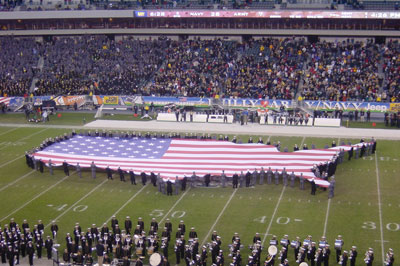All Nonfiction
- Bullying
- Books
- Academic
- Author Interviews
- Celebrity interviews
- College Articles
- College Essays
- Educator of the Year
- Heroes
- Interviews
- Memoir
- Personal Experience
- Sports
- Travel & Culture
All Opinions
- Bullying
- Current Events / Politics
- Discrimination
- Drugs / Alcohol / Smoking
- Entertainment / Celebrities
- Environment
- Love / Relationships
- Movies / Music / TV
- Pop Culture / Trends
- School / College
- Social Issues / Civics
- Spirituality / Religion
- Sports / Hobbies
All Hot Topics
- Bullying
- Community Service
- Environment
- Health
- Letters to the Editor
- Pride & Prejudice
- What Matters
- Back
Summer Guide
- Program Links
- Program Reviews
- Back
College Guide
- College Links
- College Reviews
- College Essays
- College Articles
- Back
The Importance of the First Amendment
The 1st Amendment of the U.S. Constitution states, “Congress shall make no law respecting an establishment of religion, or prohibiting the free exercise thereof; or abridging the freedom of speech, or of the press; or the right of the people peaceably to assemble, and to petition the government for a redress of grievances.” (American Nation, 884). This means that one of the main protections is the freedom of religion. Freedom of religion includes the Establishment Clause and the Free Exercise Clause. The Establishment Clause states that the government cannot establish a national religion or show preference to any religion. The Free Exercise Clause states that Americans have the right to practice religion freely (within reason). There is also the Freedom of Expression, where Americans can show their feelings by writing and speaking freely, gathering in meetings, asking the government for change, and many more. Freedom of religion can be thought about in two ways: Government free from religion and Government free for all religion. Justice Hugo Black thought that there should be a test that decided of a law was too religious and that there should be a wall between Church and State. The Lemon Test was invented, and the three things it looked for was if the purpose of the law was religious, did the effect of the law support/restrict religion, and if the law had the government tangle with religion. If any one of these three things were violated, the law would be considered as too religious. On the other hand, Justice William Rehnquist said that the Establishment Clause did not intend there to be a wall of separation between church and state, and that it did not mean government and religions had to be neutral, or that the government could never give financial aid to religion.
The 1st amendment for religion is both defined and limited in many ways. The two most significant are the cases Wisconsin vs. Yoder and Oregon vs. Alfred Smith. In Wisconsin vs. Yoder, an Amish family was prosecuted for pulling their children out of school because the law had said children had to attend school until the age 16. This case expanded our rights because the Court decided that the law was less important than this religion. The significance of this is that this decision prevented states from making students attend throughout high school. This interferes and intrudes the family that does not believe in this custom. However, in Oregon vs. Alfred Smith, our rights had shrunk. Smith was fired from his job because he had ingested peyote as part of their traditional ceremonies of the Native American Church. Peyote was illegal at that time under Oregon’s state law. The Supreme Court had decided that a valid state law was more important than to express religion freely, in this case. These cases have broadened Americans interpretations of the Free Exercise Clause majorly.
The protections of the 1st amendment for religion are so beneficial and necessary to have today in America. Without these freedoms, there would still be one religion practiced by everyone. Even if you did not believe in the religion, you would have to follow the rules and do something that you don’t want to do! It also separates America from most countries. While most countries celebrate the same holidays, Americans celebrate all different kinds. Almost everybody says that freedom of religion is important to them in a way. Even though some people may think that this protection is giving too much freedom, Americans should be very grateful for this amendment. Without it, America would not be the same world full of liberty and opportunities!

Similar Articles
JOIN THE DISCUSSION
This article has 0 comments.
